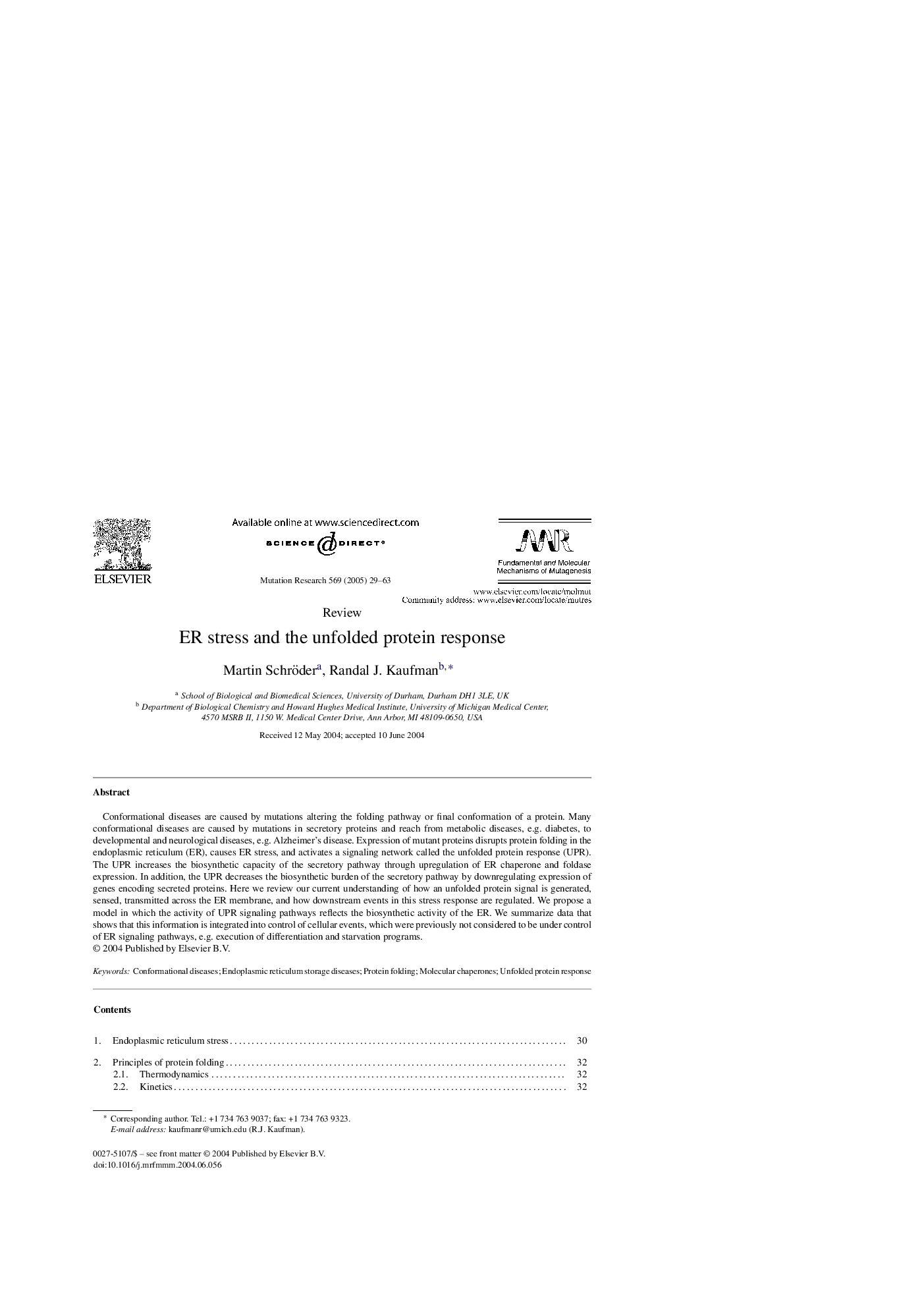| کد مقاله | کد نشریه | سال انتشار | مقاله انگلیسی | نسخه تمام متن |
|---|---|---|---|---|
| 9909203 | 1548440 | 2005 | 35 صفحه PDF | دانلود رایگان |
عنوان انگلیسی مقاله ISI
ER stress and the unfolded protein response
دانلود مقاله + سفارش ترجمه
دانلود مقاله ISI انگلیسی
رایگان برای ایرانیان
کلمات کلیدی
موضوعات مرتبط
علوم زیستی و بیوفناوری
بیوشیمی، ژنتیک و زیست شناسی مولکولی
تحقیقات سرطان
پیش نمایش صفحه اول مقاله

چکیده انگلیسی
Conformational diseases are caused by mutations altering the folding pathway or final conformation of a protein. Many conformational diseases are caused by mutations in secretory proteins and reach from metabolic diseases, e.g. diabetes, to developmental and neurological diseases, e.g. Alzheimer's disease. Expression of mutant proteins disrupts protein folding in the endoplasmic reticulum (ER), causes ER stress, and activates a signaling network called the unfolded protein response (UPR). The UPR increases the biosynthetic capacity of the secretory pathway through upregulation of ER chaperone and foldase expression. In addition, the UPR decreases the biosynthetic burden of the secretory pathway by downregulating expression of genes encoding secreted proteins. Here we review our current understanding of how an unfolded protein signal is generated, sensed, transmitted across the ER membrane, and how downstream events in this stress response are regulated. We propose a model in which the activity of UPR signaling pathways reflects the biosynthetic activity of the ER. We summarize data that shows that this information is integrated into control of cellular events, which were previously not considered to be under control of ER signaling pathways, e.g. execution of differentiation and starvation programs.
ناشر
Database: Elsevier - ScienceDirect (ساینس دایرکت)
Journal: Mutation Research/Fundamental and Molecular Mechanisms of Mutagenesis - Volume 569, Issues 1â2, 6 January 2005, Pages 29-63
Journal: Mutation Research/Fundamental and Molecular Mechanisms of Mutagenesis - Volume 569, Issues 1â2, 6 January 2005, Pages 29-63
نویسندگان
Martin Schröder, Randal J. Kaufman,